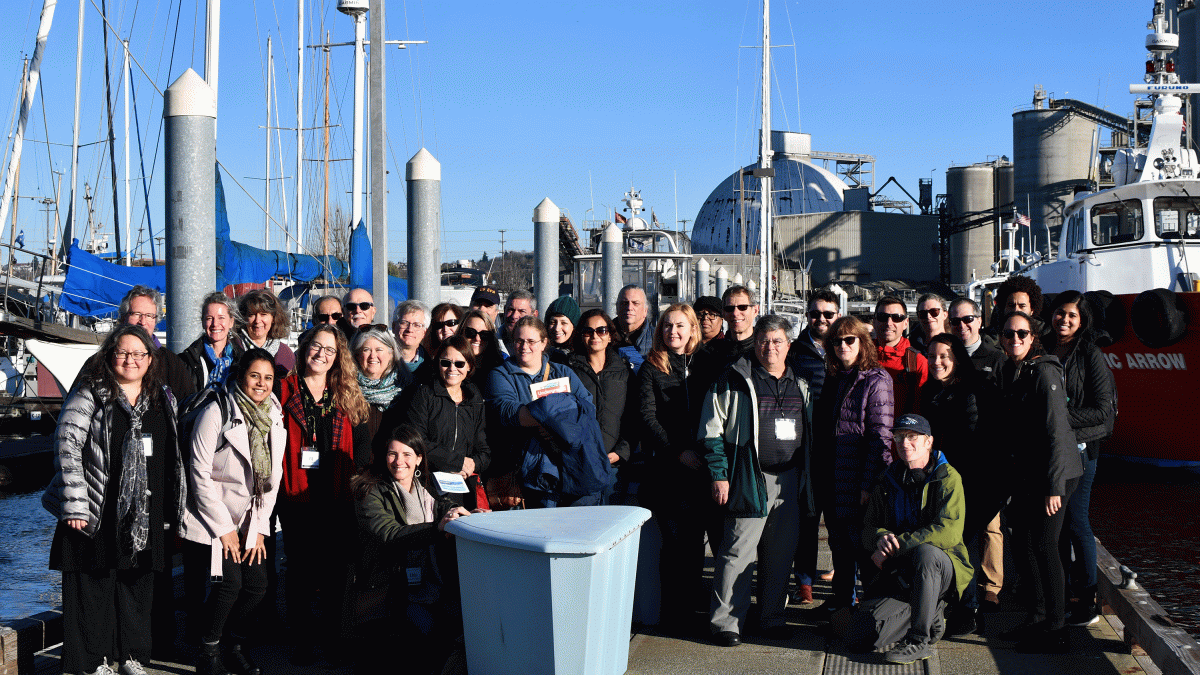
Thirty-two SRP meeting attendees toured the Lower Duwamish Waterway Superfund Site by boat.
Thirty-two attendees of the 2019 Superfund Research Program (SRP) annual meeting signed up for an optional boat tour of the Lower Duwamish Waterway Superfund Site organized by the UW SRP and hosted by James Rasmussen of the Duwamish River Cleanup Coalition (DRCC) and Shawn Blocker of the Environmental Protection Agency (EPA) Region 10. After the main meeting's conclusion, registrants bussed from the Hyatt Regency to a local marina where they loaded onto a 60-person boat with heated indoor seating.
For the next two hours, participants cruised the polluted waterway, taking in the contrast between a small stretch of native habitat with a Great Blue heron and a stretch of industrial use where the noise and smell of from heavy machinery were overwhelming. Perfect sunny weather provided a rare glimpse of Mount Rainier in the distance.
Rasmussen, who is a member of the Duwamish Tribe, provided a historical context that included the perspective of Native Americans and other neighbors, many of them immigrants, who still practice subsistence fishing on the river. Some have homes on the river's banks. Blocker talked about the massive cleanup efforts undertaken by parties responsible for the river's contamination including Boeing, Seattle's major aircraft producer. Both guides discussed the complicated process by which standards are set for cleanup.
Areas of riverbank with evidence of recent ecological restoration hinted at the hope for a future where sources of pollution into the Duwamish have been controlled, legacy contamination removed, and native vegetation re-established along the banks. In that future vision, the salmon who still migrate up this river and the people who still fish for them don't have to worry about the PCBs and heavy metals that currently threaten human and ecosystem health. As one participant described as their takeaway, "Yes, it is possible for different groups to come together to solve a big problem!"
On the tour SRP and NIEHS faculty and staff were joined by John Ryan, a reporter with the local NPR station, KUOW; Lavanya Madhusudan, Outreach and Policy Coordinator for Representative Pramila Jayapal; and Sarah Servin, District Director for Representative Adam Smith. Box lunches were purchased from FareStart, a local business that fights hunger, poverty, joblessness and homelessness by hiring people who have struggled to find work, producing word class meal services, and donating to vulnerable community members in daycares, schools, shelters and healthcare facilities.

